In 2022 the BBC included Gohar Eshghi in a list of 100 inspiring and influential women from around the world and praised her as a symbol of endurance and persistence. How did a poor woman who some say is illiterate became an international symbol of resistance to injustice?
“I said I didn’t do anything. Why should I shut my mouth? I just write what I see and what I hear.”
These were the last words Sattar Beheshti wrote on his blog: a collection of writing that was too aggravating and outspoken for Iran’s authorities. After threatening, intimidating and torturing him, they eventually killed him in November 2012.
Beheshti wrote about the death threats, saying authorities told him: “Tell your mother she should wear black mourning clothes because you won’t shut your mouth.”
“They said: ‘We can do whatever we want and we behave however we want. You just shut up, and don’t report it. Otherwise we will shut you up and nobody will even notice what happened to you’,” Beheshti wrote.
Today, more than a decade later, Beheshti’s mother Gohar Eshghi still wears black, as she has done since the day she received the news of her son’s death. She can be seen wearing her mourning clothes in a recent video marking the anniversary of his death.
A Life of Sorrow
Eshghi was born in Neyshabur, a city in northeast Iran, in 1946. Some of her relatives say she is illiterate. But since the death of her 35-year-old son from wounds received from torture in prison Eshghi’s voice has become one of the loudest calling for justice in Iran.
Eshghi’s life has been full of sorrow. She was her husband Sardar Beheshti’s second wife and had four children with him - Aliasghar, Sattar, Rahim and Sahar. Later Eshghi separated from her husband and lived with her second son Sattar. Eshghi had been a housewife all her life, so in order to earn a living after the separation she had to work as a cleaning lady and at a mortuary. Beheshti’s own writing and calls for justice were perhaps inspired by his mother’s difficult life.
Eshghi’s struggles gave her a toughness that meant she was not easily intimidated. She fought for justice - despite her old age and failing health - and became a symbol of Iran’s fight against oppression after her son died.
Sattar was was a labourer by trade and had developed a concern for many social issues.
One of his friends told IranWire: “I knew Sattar from social media. He was truly the son of such a [strong] mother. I remember a few months before his death, in May 2012, he told me that a teenager from Golestan Province, in the north of Iran, was coming to Tehran for a bone marrow transplant and needed a blood donor for a transfusion. We made an appointment and went to the hospital to see if we could donate. Our blood types didn’t match and we couldn’t do anything for the teenager, Farhad. Sattar meanwhile had bought a health insurance card not only for himself but also for me - so that I wouldn’t have to pay anything for the blood test. And he took a picture of me with Farhad. Every time I see that picture, since Sattar’s murder, I think of him.”
Sattar lived with his mother in Robat Karim, a small town close to Tehran, in a small apartment in a narrow street. But “it wasn’t a home,” according to Mohammad Nourizad, an Iranian filmmaker and activist. “It was the bare minimum, more like a shelter than a home. The floor wasn’t carpeted or covered with anything substantial - just blankets and only a few pieces of furniture.”
The Worst News
Eshghi's suffering reached a painful new level on November 6th, 2012, the day a security official called her son-in-law to say that Beheshti had died in prison.
“The security officials called my husband and asked him to prepare my mother for the news, to buy a grave plot, and to pick up Sattar’s body the next day,” his sister Sahar told IranWire. “That’s all they said. We didn’t know anything. We didn’t know why they killed him. What happened to him? My brother was fit and healthy when they arrested him and everybody knew that.”
From that moment on Eshghi became the woman now widely known across Iranian social media - a mother draped in black with a photograph of her son on her chest. She became the voice of her dead son and constantly demanded the truth.
The security services offered Eshghi a financial settlement several times if she agreed to stay silent about her son’s death. They tried threats as well as inducements: after Beheshti’s death the authorities told her that her daughter would also be arrested if they did not accept the settlement.
Eshghi signed the documents the authorities pushed at her - but then she immediately spread the news of it as widely as possible.
“The authorities showed me a warrant for my daughter’s arrest,” Eshghi told Deutsche Welle at the time. “They told me to sign their deal or they’d arrest Sahar. I was forced to sign the deal. I couldn’t accept another loss, so I signed it under duress.”
Forty days after Beheshti’s death, during a memorial service for him, security officials attacked his family and beat everyone, including Eshghi herself. She sustained injuries to her leg, her shoulder and her head, but even this could not dissuade her from speaking out. “My silence is not for sale. And if they don’t consider our demand in calling for a fair trial [regarding Sattar’s death] then I will kill myself in front of the court,” she said.
In April 2013 Eshghi published an open letter to Iranians saying she had received all kinds of threats because of her persistent calls for a trial of the alleged perpetrators of her son’s death. And although she knows that she should not expect justice from Iran’s current judicial system, she still will not relent.
“I‘m Afraid of Nothing”
“As a mother,” Eshghi wrote, “and especially as Sattar Beheshti’s mother, I’ll do anything to show the security officials that I‘m afraid of nothing and will never give up until my son’s killers are brought to justice. I won’t give up, even though I know hired assassins could kill me easily whenever they want. How pleasant is the thought of seeing my beloved son again, on the other side.”
Eshghi continued to use every opportunity to keep Beheshti’s memory alive. On Labour Day in 2013 she wrote a further open letter, this one to the workers of the world: “My son is no longer with us. But May Day reminds me of my beloved son, a diligent worker who paid with his life for his country and for his mother. Mother's Day and May Day are different for me this year. I miss his voice, his presence and his care. I am proud that my son belongs to a class who are the pillars of society - good people who have no capital other than a day in the calendar. And as Sattar’s mother, a hard-working labourer, I send May Day greetings to all workers of the world.”
When Catherine Ashton, the former European Union high representative for foreign affairs, travelled to Iran in 2014, Eshghi took part in a meeting along with other female activists including Narges Mohammadi, and spoke about her son’s death under torture. The meeting provoked Iranian officials, who quickly put Eshghi’s family under more pressure.
In August 2014 an Iranian court issued a verdict on the death of Sattar Beheshti. Akbar Taghizadeh, a “cyber police” officer who was the main suspect in his murder, was sentenced to involuntary manslaughter and received three years in prison, 74 lashes and two years banishment to Borazjan in southern Iran.
Eshghi did not accept the verdict, insisting that Beheshti’s death under torture was not manslaughter but premeditated murder.
She also said that if it were up to her she would not have sought punishment for the perpetrators under Sharia law. “I can’t even kill an ant,” she said. “If they would have apologised at the beginning and said that they made a mistake, I would never ask for someone to be executed.”
Calling on Khamenei to Resign
In August 2019 Eshghi participated in a non-violent civil action when she joined 13 other female activists to call for Iran’s Supreme Leader, Ayatollah Ali Khamenei, to step down. In November 2021 Eshghi and her daughter Sahar Beheshti were detained on the anniversary of Sattar’s death. Eshghi suffered a heart attack brought on by stress during the raid and was temporarily unable to breathe. Officers prevented Beheshti from bringing her mother’s medication with her, and when her son-in-law Mostafa Eslami tried to intervene he was also severely beaten.
During the 2022 nationwide protests following the death of Mahsa Amini in the custody of morality police Eshghi posted a video of herself without hijab in solidarity with protesters. “After 80 years I am removing my hijab because of this religion that kills people,” she said in the video. “I do not say ‘Death to Khamenei!’, I say death to those who are sitting at home, death to those who are afraid.”
On December 10, 2022, the International Center for Human Rights in Toronto announced that it had chosen Eshghi, “the mother of justice and freedom”, as the winner of its annual award.
The next day Eshghi announced in a video message that she and her family had been threatened by government agents. She said that if anything happened to them Supreme Leader Ali Khamenei would be responsible. She added that the security forces had been threatening her for 11 years, but she and the people of Iran were ready to expel them and their master from the country.
Eshghi and her demands for justice in the case of her son made her tiny home - the one without proper carpeting - a place for gatherings of political and social activists. With her black clothing, and the photograph of her son on her chest, she will long be remembered as one of Iran’s most influential women.
visit the accountability section
In this section of Iran Wire, you can contact the officials and launch your campaign for various problems




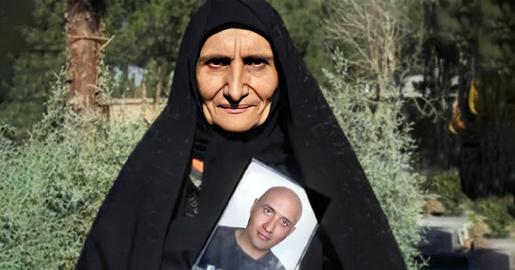
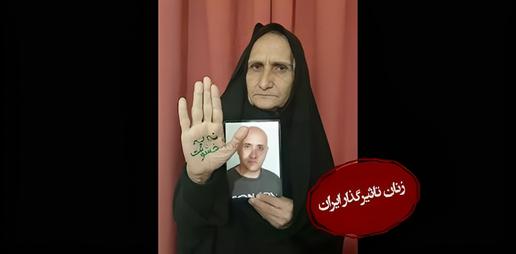
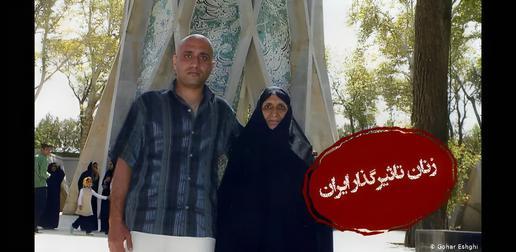











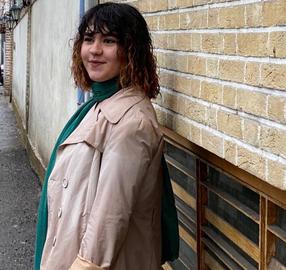
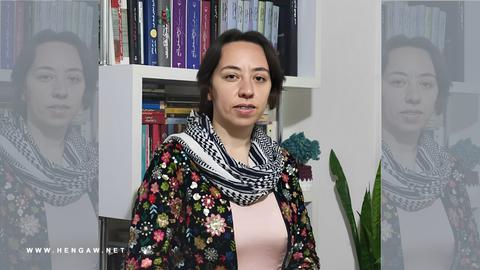





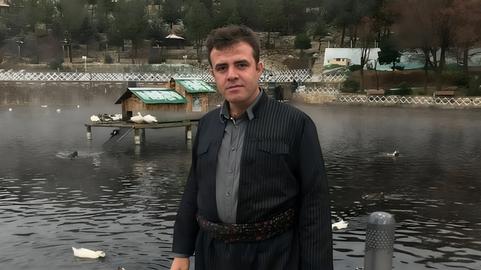
comments